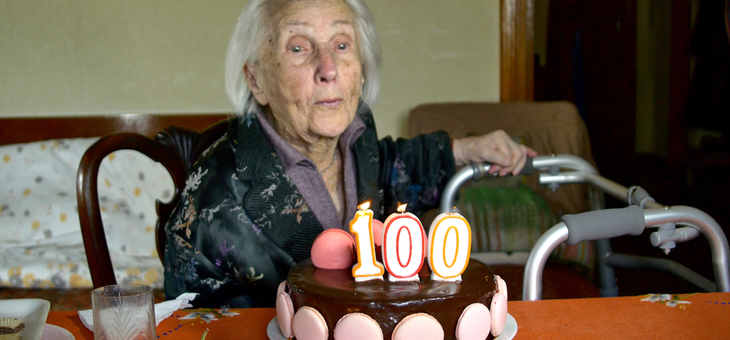A Dutch study is aiming to show how those fit of body can also stay fit of mind.
“One day everyone who is physically able to reach 100 may also be able to remain mentally healthy,” writes Jane E. Brody for The New York Times.
She says findings from the study may help many more of us become “cognitive super-agers” – the term researchers use to describe people who “approach the end of the human lifespan with brains that function as if they were 30 years younger”.
Super-agers in the Dutch study experienced “no decline in major cognitive measures, except for a slight loss in memory function”.
Measures surveyed included the ability of participants to make decisions and plans and execute them; recreate by drawing a figure they had looked at; list animals or objects that began with a certain letter, and avoid distraction when performing a task or getting lost when leaving home.
Researchers are investigating two explanations for super-ageing – resistance and resilience.
“With the former, scientists say, some brains are just able to avoid damage. Genetics and lifestyle play a role. But with the latter, fascinatingly, some brains show signs of ageing commensurate with Alzheimer’s and are able to weather the damage regardless,” reports insidehook.com.
Read more: Lawyers call for dementia decision-making law changes
People with cognitive resilience can accumulate “higher levels of brain damage before clinical symptoms appear,” the Dutch team reported.
Yaakov Stern, neuropsychologist and director of cognitive neuroscience at Columbia University College of Physicians and Surgeons, says resilient individuals have a “cognitive reserve” that enables them to cope better with pathological brain changes.
Many studies have confirmed there are things we can do to keep our brains healthy.
Dr Stern says obtaining a higher level and better quality education; choosing occupations that deal with complex facts and data; consuming a Mediterranean-style diet; engaging in leisure activities; socialising with other people, and regularly exercising all help.
“Controlled trials of exercise have shown that it improves cognition,” he says. “It’s not just a result of better blood flow to the brain. Exercise thickens the cerebral cortex and the volume of the brain, including the frontal lobes that are associated with cognition.”
Read more: People with dementia need more support for decision making
Dr Thomas T. Perls, a geriatrician at Boston University who directs the New England Centenarian Study, says: “Alzheimer’s disease is not an inevitable result of ageing.”
Those without a genetic predisposition for the disease can delay or stall it entirely by “exercising regularly, maintaining a healthy weight, not smoking, minimising red meat in the diet and doing things that are cognitively new and challenging to the brain, like learning a new language or a musical instrument.”
There is also a direct connection between hearing and preserving cognitive function.
“Being stubborn about wearing hearing aids is just silly,” Dr Perls says. “Hearing loss results in cognitive loss because you miss so much. You lose touch with your environment.”
Insidehook.com says enriching experiences also help.
“That could mean pursuing higher education, working a job that requires complex problem-solving or mastering a new craft.
“There are no guarantees here. You may not live to 100 if you do these things, and you may make it there and never remember your own name, but for now, they’re your best shot. The good news? They’re all things you could look back on after a life lived to only 70 and know you did it right.
Read more: Professor Kaarin Anstey explains facts about dementia
In April, The Age reported that after retiring, super-agers continue to challenge themselves, are not deterred easily and have a sense of optimism.
And dietician Rhoda Lucas told healthtimes.com: “While there is no one perfect solution for everyone, focusing on nourishing your gut, body and mind coupled with regular exercise is a great place to start!”
She believes in the importance of resistance training at least three times a week to maintain lean muscle mass.
The loss of muscle mass, known as sarcopenia, begins at 30. At this stage, the body will lose 3 to 8 per cent muscle mass each decade with a more drastic decline after 60.
“It (sarcopenia) doesn’t just affect your athletic performance or how you look in a swimsuit, it also impacts your longevity. The great news is you can turn this around and reverse it.
“The treatment is resistance training! Yes, that means lifting weights to stimulate your muscle fibres which in turn stimulates your bones and keeps them healthy.”
What do you do to keep the brain as sharp as possible? Why not share your cognitive tips with the YourLifeChoices community in the comments section below.
If you enjoy our content, don’t keep it to yourself. Share our free eNews with your friends and encourage them to sign up.

